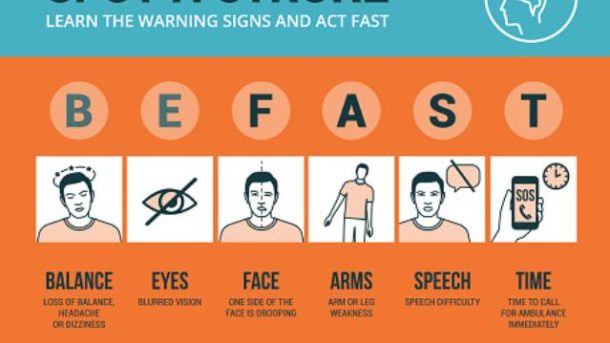Strokes are one of the leading causes of death and disability worldwide. They occur when blood flow to the brain is interrupted, leading to severe consequences. While strokes often strike suddenly, your body may give you subtle warning signs as early as a month before. Recognizing these signals could save your life or that of someone you love. Based on scientific research, here are the key symptoms to watch for:
1. Frequent Headaches
Persistent headaches that are unusual or more severe than usual may indicate issues with blood flow to the brain. These could be linked to high blood pressure or mini-clots forming in your bloodstream. If you experience headaches that do not respond to usual remedies, consult a healthcare professional.
2. Dizziness and Loss of Balance
Frequent episodes of dizziness, vertigo, or difficulty maintaining balance can be a sign of compromised brain function. These symptoms often indicate insufficient blood supply to certain parts of the brain.
3. Sudden Vision Changes
Blurred or double vision, as well as loss of vision in one or both eyes, may occur when a stroke is imminent. This happens due to disruptions in the blood vessels supplying the visual cortex of the brain.
4. Unexplained Fatigue
Feeling unusually tired or lethargic despite getting adequate rest might signal that your body is struggling with insufficient oxygen supply. Fatigue can be an early indicator of many conditions, including the risk of stroke.
5. Weakness or Numbness
Sudden weakness, numbness, or tingling in the face, arms, or legs, particularly on one side of the body, is a classic warning sign. Even if these symptoms appear briefly and resolve on their own, they should not be ignored.
6. Speech Difficulties
Trouble speaking, slurred speech, or difficulty understanding conversations could indicate minor brain disruptions. These episodes are often precursors to more severe strokes.
7. Difficulty Swallowing
Dysphagia, or difficulty swallowing, may occur when certain brain areas responsible for this function are affected by impaired blood flow.
8. Changes in Personality or Cognition
Unusual mood swings, confusion, memory problems, or difficulty concentrating can be a sign that your brain isn’t getting enough oxygen. This could result from narrowing or blockage in the arteries supplying blood to your brain.
9. Transient Ischemic Attacks (TIAs)
Sometimes referred to as “mini-strokes,” TIAs are temporary interruptions of blood flow to the brain. They present symptoms similar to those of a stroke but resolve within a few minutes or hours. However, they are a serious warning sign of an impending full stroke.
What to Do If You Notice These Symptoms
If you or someone close to you experiences any of these symptoms, especially if they appear suddenly or in combination, seek medical attention immediately. Early detection and intervention are crucial in preventing a full-blown stroke.
Prevention Is Key
While recognizing these signals is essential, preventing strokes altogether is even better. Here are a few tips to reduce your risk:
- Manage Blood Pressure: Keep your blood pressure within a healthy range to reduce strain on your blood vessels.
- Control Cholesterol Levels: High cholesterol can lead to arterial plaque buildup, increasing stroke risk.
- Exercise Regularly: Physical activity improves overall cardiovascular health.
- Adopt a Healthy Diet: Focus on whole grains, lean proteins, and plenty of fruits and vegetables.
- Quit Smoking: Smoking damages blood vessels and accelerates plaque buildup.
- Limit Alcohol: Excessive alcohol consumption can elevate blood pressure.
Final Thoughts
Strokes can be devastating, but they are often preventable. By staying informed and paying attention to your body’s signals, you can take proactive steps to safeguard your health. Share this information with friends and family—it might save a life.



